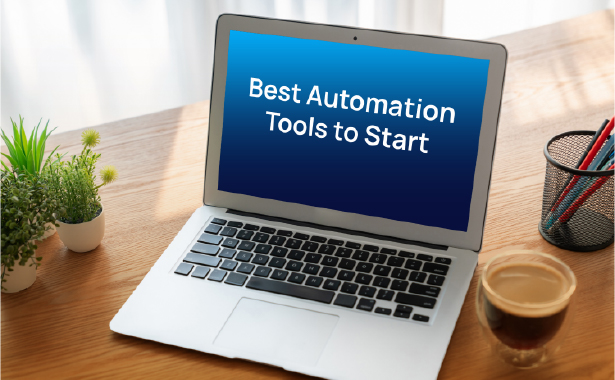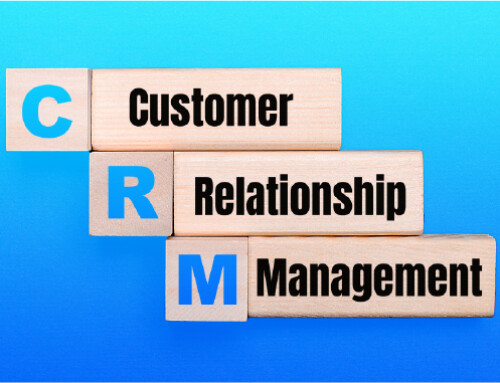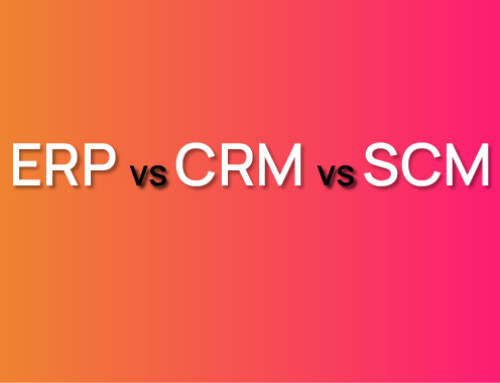Contents
Sales is all about results, and if your sales team isn’t getting them, you have a problem. But it’s not just a matter of hiring better salespeople or setting more aggressive quotas: even if you have the most talented salespeople in the world working for you, they’re going to struggle if they don’t have the tools they need to do their jobs effectively. Fortunately, there are plenty of great tools out there that can help automate your sales process and give your team more time (and energy) to focus on closing deals—all without breaking the bank! In this post we’ll explore 12 different automation solutions and how they might be used by different types of companies and teams.
Sales automation is a new kind of software that helps you sell more. It has been around for a few years now, but it’s still not widely used. That means there’s still plenty of opportunity for your business to take advantage of this technology.
What are Sales Automation Tools?
Sales automation software is a type of sales software that helps you improve your sales process. By automating the way people work together, you can better manage your time and resources so that everyone gets the most out of their day. Sales automation tools are used by businesses to organize and automate their sales processes, allowing them to perform important tasks like sending out emails, generating proposals and tracking lead information. By automating these routine tasks, sales teams can focus on the more important parts of their job like building relationships with clients and closing deals.
Some common use cases for sales automation tools include:
- Tracking leads and opportunities on a CRM (customer relationship management) platform
- Automating emails to prospects and customers through drip campaigns that prompt them to engage at different stages of the pipeline
- Lead generation
- Lead qualification
- Generating quotations automatically based on lead information
- Generating, sending, and tracking invoices
- Creating seamless payment links along with invoices
Different Types of Sales Automation Tools
Sales automation software is a system that uses data to automatically send out emails, text messages, or make phone calls at certain times. The idea behind sales automation software is that it frees up sales reps to spend their time on other activities—like closing deals and making money!
The key benefits of using sales automation software include:
- Automating repetitive tasks (for example: sending out follow-up emails) so you can focus on high value activities
- Having full control over the timing of your communications (for example: waiting until Monday morning after people have had a chance to check in over the weekend)
Sales Process Automation Software
Sales process automation software is a type of sales automation software that automates the sales process for salespeople. It can help you save time and money by automating routine tasks like sending email follow-ups, scheduling meetings, and updating customer records.
Sales Force Automation Software(SFA)
Sales Force Automation Software (SFA) is a software that automates the sales process. It’s a CRM that integrates with email and other systems, helping you manage your leads, contacts, pipeline and even social media accounts.
Essentially, SFA is designed to automate the entire sales process from start to finish – so when they say they’re going through the ‘automation’ process they mean it!
Sales Contact Management Software
Sales contact management software is a type of sales automation tool that helps you keep track of your sales leads and prospects. It can be used to store information about your potential buyers, such as profiles, phone numbers, emails, social media accounts and other contact details.
This type of software also allows you to track all interactions with them—whether it’s via email or phone calls—so that you can easily create reports about the status of each individual lead.
What Are The Benefits of Sales Automation?
The benefits of sales automation include:
- Reduced time spent on repetitive tasks. Automating routine tasks frees your reps from having to manually enter the same information into different systems, which saves them hours of time each week.
- Increased efficiency, productivity and accuracy in completing repetitive tasks. When you eliminate manual entry for things like lead assignment and notes, it reduces errors and improves the quality of your data. This makes it easier for reps to find what they need faster when they’re making decisions about their next steps with a prospect or customer—and ultimately increases their productivity because they no longer have so much extra work that can slow down progress towards closing deals (or even getting a meeting).
What Are Some Common Features Of Sales Automation Tools?
Common features of sales automation tools include:
- Automated follow-up. These features help you follow up with leads at the right time and in the right way. They might, for example, send a series of emails over a period of weeks or months as they wait for the prospect to respond.
- Lead scoring. This feature assigns a score to each lead based on your own criteria—for instance, how likely they are to buy your product or service. The higher their score, the more attention your sales team should devote to them and vice versa.
- Lead management tools help sales reps stay organized by giving them access to all relevant information about each prospect in one place—like email addresses and phone numbers—so there’s no need for manual data entry when responding quickly is important (such as during an initial cold call).
- CRM email integration is one of the most important features that sales automation software offers. It allows you to send emails to your customer automatically based on their behavior, such as when they open an email, or when they click a link. This can be useful for sending out birthday cards, Christmas wishes and other personal messages to customers. It’s also great for automatically sending out drip campaigns with relevant information about your product or service.
Who Needs Sales Automation Tools?
Sales automation software is used by a variety of businesses and industries, but one thing that all of these types of companies have in common is that they sell something.
SaaS companies use sales automation to help them close deals with customers and increase their conversion rates. B2B companies use it for the same purpose, as well as for managing the entire sales process from start to finish (including time tracking). B2C companies use it to manage customer relationships and encourage customer loyalty. Companies selling products or services may also use the software to help them generate leads on social media platforms like Facebook Ads or LinkedIn ads. Finally, subscription-based businesses will find many uses for sales automation tools because they allow managers to track how much revenue is coming in through each channel and understand which kind of offer is most effective at bringing in new subscribers/members/etc., as well as analyze historical data about past years so you can plan accordingly when deciding what kinds of offers should be made next year (or any other time).
Basically, sales automation is important for any business that sells to other businesses or has a sales process. This includes:
- Software companies. These are the most obvious examples, but it also includes any other industry that can benefit from using sales automation tools to streamline their processes and gain access to new customers.
- Service providers, such as web designers, writers, consultants and more. A lot of people in these industries rely on being able to reach new clients through word-of-mouth referrals or cold emails/phone calls (which isn’t always effective). If you’re running a small business like this, then sales automation tools could help get your brand in front of more potential leads than before!
- Contractors and construction companies. They deal with a lot of customers and have to make quoting, invoicing, and payment much more streamlined and trackable.
- Entrepreneurs: Business made of very small teams need to focus on growth and business, and need sales automation tools to help them save time.
What to Look for in Sales Automation Tools?
There are several key features of sales automation software. Automated lead scoring is a feature that helps you prioritize which leads to follow up on first. Next, automated email templates and drip campaigns allow you to save time and create personalized emails for each new lead without having to write them all from scratch. Sales reports can also be automated so that you don’t have to manually compile information from multiple sources when you need it.
Sales automation software offers many other benefits such as streamlining your sales process, generating more leads, improving productivity because there’s less manual work involved in tracking sales activities, and making sure everyone knows what’s happening with their incoming leads at all time. To begin evaluating different sales automation tools, you need to determine what you’re looking for in a tool.
- Is it important that your new software can help you automate your sales process? If yes, then look at its features and see if they’re compatible with the way you work.
- Do other companies use this software successfully? If so, find out why they chose this tool over others.
- Is it easy enough to use that even someone without much technical knowledge can figure out how to operate it? Watch videos of users setting up and using the app so you can get an idea of what setup will be like for you and whether or not it seems intuitive enough that someone could pick up on quickly.
- How much does this software cost per month/year? Find out what kind of budget needs are required for these programs before purchasing them by asking questions about pricing or searching online for reviews about pricing plans offered by similar providers (such as Google/Dropbox).
Cloud based sales automation tools are more efficient, cost effective, and convenient than on-premise solutions. Cloud based sales automation tools can help your business streamline their processes and increase efficiency. With cloud-based solutions you will be able to access your data from anywhere at any time. You’ll also have the ability to use multiple devices at one time, so you won’t need a single laptop in order to manage your company’s leads or sales pipeline.
What are some examples of sales automation?
Sales automation is a software solution for businesses to help them sell more products and services. There are several types of sales automation, but here are some examples:
- Automated email templates that can be customized with information about the lead or customer and then sent out automatically once you’ve met the criteria you set in your sales process.
- Lead scoring, which allows you to prioritize leads based on their likelihood of converting into customers (and pay attention only to high-scoring ones).
- Automated follow-up emails that allow you to continue engaging with prospects until they convert into customers (or until they unsubscribe from your offers). This can be done by following up with individuals in a specific timeframe after they visit a landing page or after they’ve placed an order; or it could include sending out a survey asking for feedback on their experience with your company so far.
These are just three examples of how a good sales automation solution can help streamline the process of selling products and services by automating routine tasks such as emailing potential customers, maintaining contact lists, assigning tasks within teams according to each person’s expertise (a process known as “roles”), etc..
Best Sales Automation Tools: the Candidates
RunSensible
RunSensible, a pioneer in sales force automation, offers a wealth of productivity-enhancing solutions to encourage conversions and boost revenues. By gathering essential lead data, RunSensible’s automated data capture enables sales teams. Immediately making it apparent to every team member in every department.
This function gets rid of administrative obstacles that could cause a sales process delay. This helps both your customer service representatives and your sales representatives to maximize their in-person contacts.
A great solution for managing sales activity without having to use your hands is RunSensible. In order to concentrate your efforts where they will have the most positive financial impact, create real-time reports, plan meetings without the time-consuming back-and-forth, and score leads.
RunSensible Features:
- Sales dashboard performance
- software for prospecting
- catalogs of goods
- Building apps
- Continuous Live Chat Support
- Live trainings online
- Version of the free mobile app
- analyses of sales
Salesforce
Salesforce is a cloud-based CRM and sales automation tool that allows you to manage your customers, products, and sales team tasks in one place. This software provides everything you need to run your business from a single dashboard that can be accessed anywhere on any device.
Salesforce has been around since 1999 and has since become one of the leading enterprise level tools for sales teams worldwide. With its robust set of features, Salesforce makes it easy for organizations to automate their sales processes and achieve more revenue by automating manual tasks into repeatable processes. Salesforce offers many different pricing plans depending on how many employees use the app at once (the number of users is called “seats”).
HubSpot
HubSpot is a CRM, marketing automation, and lead management system that integrates with a wide variety of third-party apps. HubSpot is cloud-based and requires no installation on your computer; instead, you can access it through any device with an internet connection. If you’re interested in testing out HubSpot before committing yourself to a paid plan, there’s a free trial option available as well as 30-day money back guarantees on all plans (including the free version).
If you’re looking for an enterprise solution rather than just something for small businesses or startups, HubSpot has an Enterprise Edition that comes with everything from advanced segmentation tools to custom workflows so your team can stay on top of every aspect of their digital marketing campaigns!
Seismic
Seismic is an integrated marketing automation platform that helps companies create, nurture and convert leads into customers. It’s particularly useful for businesses that need to work with multiple sales channels and have complex sales processes.
If you’re looking for a tool to help you manage your entire customer lifecycle in one place, Seismic is a great option. The platform automates everything from lead generation through email outreach to the follow-up process, which makes it easier than ever before for your team members to meet their quotas without sacrificing quality.
Seismic also offers integrations with more than 100 other applications so that you can seamlessly connect each part of your marketing efforts—from landing pages to webinars and lead scoring—into one seamless workflow across every channel in real time (and without having anyone hand-code).
Seismic costs $79/month per user and comes with unlimited data storage so there’s no limit on how much data you can store or analyze in Seismic’s powerful analytics tools (which includes funnel reports). You’ll also get access to all future updates at no extra cost whenever they’re released throughout the year
Pipedrive
Pipedrive lets you manage your sales pipeline. It’s available as a desktop app, mobile app, and web app. With Pipedrive you can:
- Manage customer relationships
- Track leads
- Automate your sales process
SalesLoft
SalesLoft is a sales automation tool that helps you manage leads, close deals and grow your business. SalesLoft helps you automate your sales process to save time and money by integrating with Salesforce, HubSpot and other tools.
Zendesk Sell
Zendesk Sell is a sales automation tool that allows you to track your sales process. It gives you a dashboard to view your pipeline and manage your team. You can also use it for CRM, so if you have multiple people working on different aspects of the sale, they all have access to the same information at once. This means no more lost emails or communication breakdowns!
Copper CRM
Copper CRM is a sales automation tool that helps you manage your sales pipeline. It integrates with Salesforce, Google Sheets, Zoho and more.
How does Copper CRM work?
Copper CRM has a simple drag-and-drop interface that allows you to create tasks or appointments from emails or direct messages from Gmail, Outlook or Twitter DMs. You can also import existing client data into the platform with ease.
Once the leads have been imported, you can use their information to create targeted campaigns by adding customized fields such as job title and industry to keep track of each contact’s interests. From there, it’s easy for you to track all communication history between contacts in one place—and see how each interaction affects their overall score!
Outreach
Outreach is a sales automation tool that helps you manage your sales pipeline, track leads, and close deals. It integrates with your CRM to make sure you have the right information at the right time.
Outreach comes with pre-built templates for email campaigns, as well as customizable templates. You can create different types of campaigns to target specific customer segments or send out automated emails based on whether a lead is hot or cold. With Outreach’s drag-and-drop editor, it’s easy to design beautiful emails without any technical know-how or Photoshop experience!
Impel CRM
If you’re looking for a sales automation tool that is easy to use and affordable, Impel CRM might be your best bet. It’s a cloud-based solution designed to help you manage your sales pipeline, automate your sales process, and close more deals.
Impel was built by the same team behind Salesforce CRM—the industry leader in customer relationship management software—so it offers many of the same features as its much larger counterpart:
- Manage contacts from one place with a single view of all relevant information about each contact
- Automate follow-up emails with drip campaigns and auto-responders
- Send personalized email messages based on customer behavior and preferences
Pipeline Deals
Pipeline Deals is a sales automation tool that helps you manage your pipeline. It’s cloud-based, so it’s easy to use. Plus, it has a free trial and an entry cost of less than $200 per month for up to 10 users.
The Pipeline Deals interface is intuitive; it feels like the app was made for you—not just by you. The customer support team has been kind when I’ve contacted them with questions about how the platform works or whether their product could solve my problems (it did).
Close.io
Close.io is a sales automation tool that helps you manage your sales pipeline. It has a freemium model, with the free version limited to 5 users and 3 projects. The paid plans (starting at $9 per user per month) include more features:
- More users
- More projects
- Integration with Salesforce and other systems like Slack and Intercom
In this article, we’ll cover why Close.io is one of the best options for growing your business in 2019 by presenting its key features such as its user interface, integration options, and pricing strategy.
The best sales automation tools will help you automate your sales process and save time and money. Here’s how these tools will increase revenue, reduce costs, improve efficiency, and much more.
Many companies are still using paper-based processes or simple spreadsheets to track their leads’ progress. If you’re one of them, then it’s time to move to a more efficient system with automated workflows that automatically send emails as soon as they are initiated by the client or rep. This means less time spent on manual tasks like sending emails manually; more time spent on what really matters: closing deals!
Improve Sales and Grow with the Right Sales Automation Tool
Automating your sales process is a great way to save time and money. It also makes it easier for you to keep track of what’s going on with your leads and customers. Sales automation tools can help you track when they contacted you last, which products they’re interested in purchasing from you, and even scheduling follow-up meetings. The best part is that most of them are free or low cost.
We hope this article has given you a better idea of what sales automation software is, and whether it’s right for your business. The best way to evaluate different sales automation tools is by looking at their features, costs, and other factors that matter to you. If you don’t have any time left over from running your business, it might be worth considering hiring someone else to help manage these tools for you!
Sales automation software is a key part of the modern sales process. It can be used to manage lead generation, closing deals and customer retention, but it’s also important to remember that even if you don’t use this type of tool yourself, your competition might be using it against you. This means that in order for your business to stay competitive it needs some kind of system in place for managing its sales pipeline and customers’ data in general—even if that just means having someone who does all their work manually!
FAQ
What are sales automation tools?
Sales automation tools are software used by different businesses to help them sell more by organizing and automating their sales processes.
Do I need to use sales automation tools?
All businesses need to use sales automation tools if they want to close more sales and increase their profits — which basically means yes, you too would do better with sales automation tools.
What are the best sales automation tools today?
The answer really depends on your business and what you expect to get from your sales automation tools. Despite that, RunSensible is probably a good candidate because of its affordable prices and comprehensive features.
Disclaimer: The content provided on this blog is for informational purposes only and does not constitute legal, financial, or professional advice.






